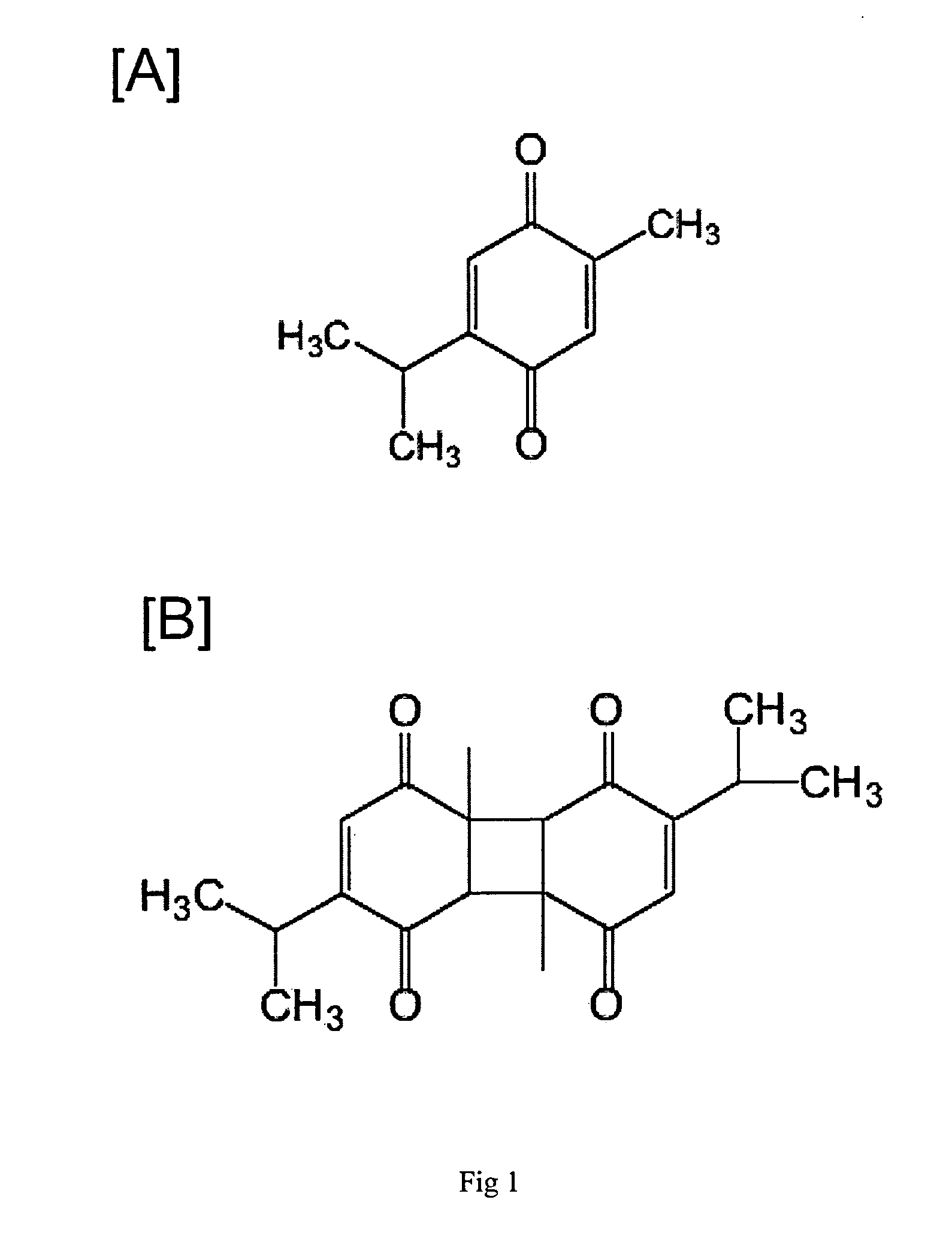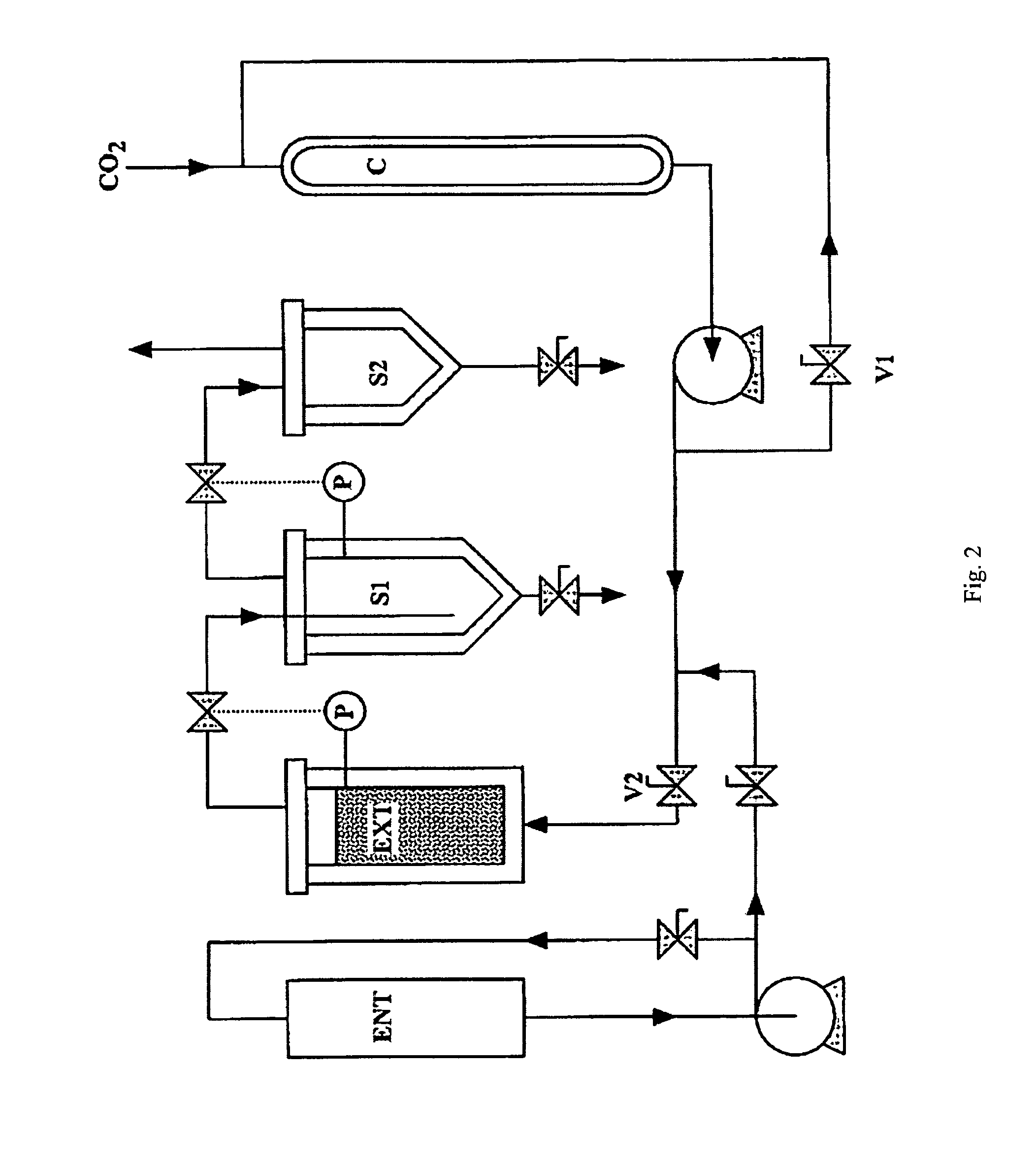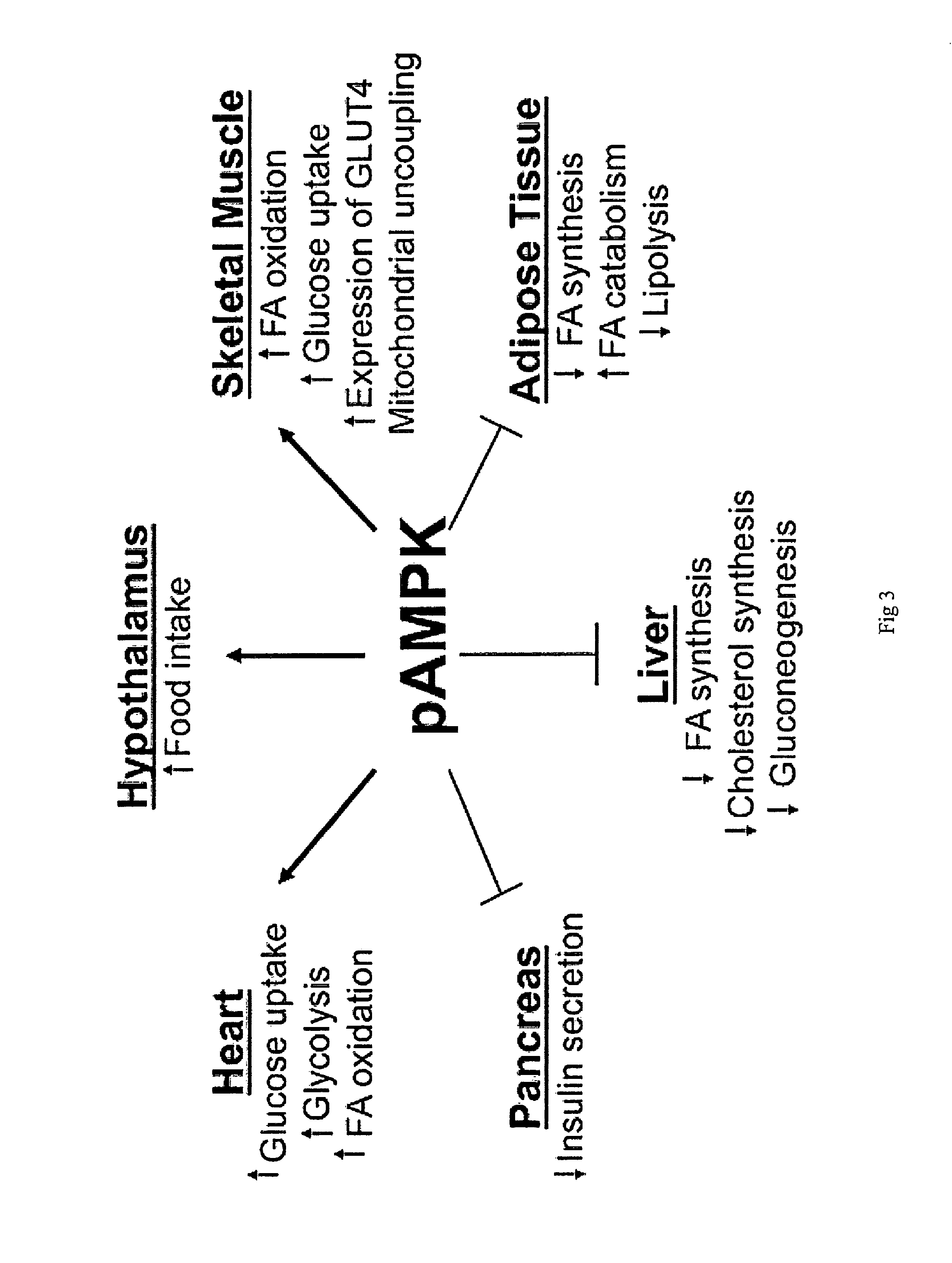Compositions from Nigella sativa
a technology of nigella sativa and composition, which is applied in the field of compositions of nigella sativa, can solve the problems of large amount of organic solvents, time-consuming and labor-intensive traditional solvent extraction, and the total cost of producing an acceptable extract or product, so as to reduce oxidative stress, inhibit excessive prostate specific antigen secretion, and increase lipolysis in adipocytes
- Summary
- Abstract
- Description
- Claims
- Application Information
AI Technical Summary
Benefits of technology
Problems solved by technology
Method used
Image
Examples
example 1
Efficiency of Supercritical Fluid Extraction of Nigella sativa from Research-Scale (100 g) and Commercial-Scale (100 kg) Quantities of Powdered Seeds
[0116]Objective—
[0117]The first objective of this experiment was to compare the extraction efficiency of supercritical CO2 extraction of powdered N. sativa seeds under research conditions, defined as amounts of about 100 g, with the extraction efficiency under commercial-scale conditions, defined as amounts of about 100 kg. A second objective was to produce four supercritical CO2 extracts of N. sativa seeds obtained under various conditions of pressure, temperature and time from commercial-scale quantities. To date, no supercritical extraction procedure has demonstrated the ability to process commercial quantities (1-100 kg) of powdered seed that contain concentrations of TQ above 10 percent without further extraction steps. It is well known in the art that scale of the extraction process can greatly affect the components of the extrac...
example 2
Free Radical Scavenging Activity of Supercritical Carbon Dioxide Extract NS9 of Nigella sativa is Greater than Thymoquinone
[0135]Objective—
[0136]The objective of this experiment was to compare the antioxidant (free radical scavenging) activity of the four NS fractions obtained by supercritical CO2 extraction of N. sativa powdered seeds in Example 1 with the pure TQ marker compound.
[0137]Chemicals—
[0138]TQ, 2,2-diphenyl-1-picrylhydrazyl and all other compounds used in this example were purchased from Sigma (St. Louis, Mo.) and were of the highest purity commercially available. The four N. sativa samples used in this study were those commercial-scale extracts described in Example 1.
[0139]Methodology—
[0140]Antioxidant activity was determined utilizing 2,2-diphenyl-1-picrylhydrazyl (DPPH), which is a stable radical. The odd electron in the DPPH free radical gives a strong absorption maximum at 550 nm and is purple in color. The color turns from purple to yellow as the molar absorption o...
example 3
Inhibition of Prostate Specific Antigen Secretion from LNCaP Prostate Cells by Supercritical Carbon Dioxide Extracts of Nigella sativa Differs Qualitatively and Quantitatively from Thymoquinone
[0146]Objective—
[0147]While the effects of TQ and various extracts of N. sativa have shown cytotoxicity to a number of tumor cell lines, no studies have been done on the effect of TQ-containing extracts of N. sativa on the secretion of prostate specific antigen (PSA), a marker for prostate hyperplasia as well as cancer. While PSA is present in small quantities in the serum of normal men, it is often elevated in the presence of nonproliverative as well as neoplastic prostate disorders. Examples of noncancerous or nonproliverative prostate disorders exhibiting elevated PSA are benign prostate hyperplasia and infections of the prostate. The objective of this experiment was to determine whether commercial-scale, supercritical fluid CO2 extracts of N. sativa containing TQ would affect prostate spec...
PUM
 Login to View More
Login to View More Abstract
Description
Claims
Application Information
 Login to View More
Login to View More - R&D
- Intellectual Property
- Life Sciences
- Materials
- Tech Scout
- Unparalleled Data Quality
- Higher Quality Content
- 60% Fewer Hallucinations
Browse by: Latest US Patents, China's latest patents, Technical Efficacy Thesaurus, Application Domain, Technology Topic, Popular Technical Reports.
© 2025 PatSnap. All rights reserved.Legal|Privacy policy|Modern Slavery Act Transparency Statement|Sitemap|About US| Contact US: help@patsnap.com



